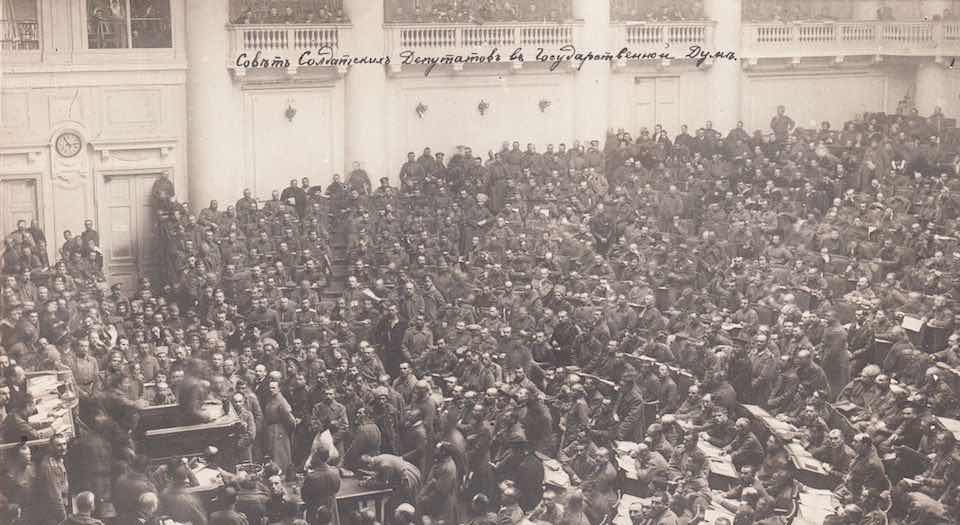
Long-read
The case for democracy
Jason Brennan's miserable tract misunderstands the nature of political freedom.
Want unlimited, ad-free access? Become a spiked supporter.
Jason Brennan’s Against Democracy has captured the political spirit of 2016. Not that of the people, whom this unashamedly elitist polemic, making the case for rule by the enlightened few, is firmly set against. At the beginning, Brennan, a professor at Georgetown University, casually notes that anyone who has found themselves reading it is probably at least college-educated. And that’s fine by him. As far he’s concerned, the less the little people have to do with politics the better. But Against Democracy has resonated with the elite. Slated for publication earlier this year, and appearing in its current form in August – wedged between Brexit and Trump – it has provided reeling anti-democrats with an ‘evidence-based’, ‘social-scientific’ script, something to lend arguments and authority to their kneekerk revulsion to both the Glorious Referendum and the vainglorious rise of The Donald.
Across its 240-plus pages, neither Brexit nor Trump are mentioned once. Clearly, it was finished before either were thought possible. But Brennan’s starting point is a kind of visceral, unabashed disdain for the masses that has become all-too-familiar in recent months: ‘Most of my fellow citizens are incompetent, ignorant, irrational, and morally unreasonable about politics. Despite that, they hold political power over me. These people can staff offices of great power and wield the coercive authority of the state against me. They can force me to do things I do not wish to do or have no good reason to so. They wield their power in ways that they cannot justify, and impose policies on me that they would not support if they were informed or processed political information in a rational way.’
Brennan poses as a plucky outsider, daring to call bullshit on our sanctimonious attachment to self-rule. But in the current demosphobic climate – a time when headlines like ‘It’s time for the elite to rise up against the ignorant masses’ are plastered across respected publications without a speck of compunction – Against Democracy’s opening broadsides come across as barely indistinguishable from the bilge we’ve been reading in the broadsheets for months. What Brennan does that’s different is bring evidence, philosophy and political-scientific theory to justify what is, in most corners, sheer prejudice. His argument, he claims, is entirely instrumental, and is replete with decidedly blunt metaphors. He likens democracy to a hammer, and an ugly pig. Democracy, for Brennan, is only useful as a means to an end: ‘competent’ government. The question for him is: is there a better hammer, or a less ugly pig?
He favours epistocracy, a ‘rule of the knowers’, in which suffrage would either be limited or diluted by giving more say to those who prove themselves worthy. Towards the end of Against Democracy, he briefly sketches out a few ways we might formally achieve this, including: restricting suffrage to those who can pass a competence exam; plural votes for the educated; an ‘enfranchisement lottery’, where voters are selected at random then trained in political ‘competence’; a nominally democratic government with an emboldened epistocratic council, able to step in when things go too far; and, most dystopian of all, a ‘simulated oracle’, where experts would draw on survey data to determine ‘what the voting public would want if it were fully informed’. But, as the title suggests, this book is far more about what Brennan is against than what he is for.
There’s strikingly little that’s new in Brennan’s critique. He draws on Plato, John Stuart Mill, Joseph Schumpeter and James Madison, marshalling data to back up millennia-old arguments. Paramount among them is what he sees as the demonstrable ignorance of the masses. He cites study after study showing that voters are systematically lacking in basic knowledge about politicians, their positions and how political parties differ, and are without the necessary social-scientific knowledge to appraise the efficacy of their proposals. Putting to one side for a moment this idea that politics is just about trivia and technical nous, rather than competing moral convictions, all he can show is that the public is disengaged with politics as it is. Brennan notes at one point that as politics has shrunken so has public engagement. But he lays the blame for this entirely with the bovine public.
Much of the book is dedicated to knocking down the arguments of democratic theorists, which he sets about with all the cock-sure glee of a prep-school debating champ. He draws on the work of Helene Landemore and David Estlund, forensically unpicking their arguments and assumptions. In the end, he shows up little more than the paucity of much modern democratic thinking, which, at least in Brennan’s assessment, seems to rely far too much on instrumental arguments. The often-made claim that modern democracies tend, on the whole, to be free, peaceful places – far less likely to be plunged into famine or huddled in the shadow of state violence – doesn’t really get us very far. As Brennan points out, none of this means that an epistocracy could not build on these gains. But for all his bluster, there remain gaping holes in his own thinking.
Brennan claims that democracy is fundamentally flawed because it gives vent to public ignorance. This is why, in his view, thoroughly positive yet tricky-to-sell policies – like drug legalisation, freedom of movement and economic liberalism – are sidelined. And yet he argues, pretty compellingly, that a feature of most democratic governments is a tendency to govern in spite of public opinion. ‘Democratic politics allows politicians, bureaucrats, and others to do things most voters oppose’, he writes. What’s more, the kind of epistocratic buffers he promotes in the penultimate chapter already exist across the West – from the Supreme Court to the House of Lords. Indeed, the ideas of checks and balances is at the heart of the US system, first promoted by James Madison in the 1778 Federalist Papers as a necessary ‘fence’ against the ‘fickleness and passion’ of the public.
Naturally, Brennan argues that more epistocracy is the answer. But there’s no mistaking the fact that the system he desires is not unlike the one we have at the moment. According to his own assessment, Westerners already live in faux-democracies that undermine the democratic will both formally – through the courts, second chambers and supranational bodies – and informally – through managerialism, technocracy and the limited political options presented by the viable mainstream parties. Elite schemes to resist and undermine the public will permeate Western politics, and yet he blames the failure of politics on the people. In this sense, Against Democracy is an inadvertent call to arms for true democrats, providing a map of the ‘fences’ that already exist between us and true self-determination, and, in Brennan’s snotty prose, a prime example of the kind of disdainful, elitist ideas which underpin them.
Brennan sees democracy as an affront to individual freedom; it ‘empowers collectives, not individuals’, he writes. In this he, again, borrows from Mill, who made a distinction between liberal rights and political trusts. For Mill, rights like free speech and bodily autonomy allowed for power over oneself, whereas ‘the exercise of any political function, either as an elector or as a representative, is power over others’. Brennan rejects the idea that a democratic majority should impose their will on the minority. And yet he seems fine with an undemocratic minority imposing its will on the majority. Hardly more freedom to be enjoyed there. In the end, he concedes that if voters are to have ‘power over others’, they should be competent. But, as one reviewer points out, the very ‘experts’ Brennan puts his faith in are the people who backed such disasters as the Iraq War and the Euro.
Experts aren’t infallible – we all know that. But the more fundamental oversight Brennan makes is to cast politics purely in terms of facts and what works, rather than ideas and what matters. He divides voters into three camps: Hobbits, those ‘mostly apathetic and ignorant about politics’; Hooligans, belligerent tribalists who behave like ‘rabid sports fans’; and Vulcans, who think ‘scientifically and rationally’ and treat politics as a dispassionate, truth-seeking process. In Brennan’s epistocracy, the Vulcans would get more of a say. But political contest entails more than assessing cold facts. Whether or not you think Britain should leave the European Union, or Trump is presidential material, involves more than just making sure the maths checks out. Values, principles and conviction matter, and none of these can be spat out by an algorithm or distilled in a test tube.
As for Brennan’s claim that democracy is antithetical to freedom, one needn’t look far back in the history books to see that we can’t rely on unaccountable elites to fight for or protect our liberty. Democracy provides the means to safeguard our freedom, but also to expand it – if we only have the courage to fight for it. (Indeed, Brennan’s curt prose whiffs of someone astounded he could be so right and yet so rarely agreed with.) But, more profoundly, democracy is an outlet for self-determination, for realising freedom in the political realm, precisely because it transcends the individual. It is only in the forging of common cause, in reckoning with the world around you with those around you, that real truth can be uncovered, tested, articulated, and that change is possible.
‘Against Politics’ was apparently the original title of this book. And, by the final chapter, that makes perfect sense. Brennan thinks politics corrupts us and turns us into ‘civic enemies’. Epistocracy, then, is not only a way to keep the public out of politics, but also to ‘reduce the sphere of politics’. This elucidates not only Brennan’s particularly individuated view on the world, but also his fundamental conservatism. By its very nature, epistocracy would be a recipe for stasis. The point of politics would become competence and management rather than vision and ambition. Democracy is not only a path to freedom, but also to progress. As Thomas Paine put it in Common Sense, fanning the flames of the American Revolution, ‘We have it in our power to begin the world over again’. This is the power anti-democrats would deny us.
Tom Slater is deputy editor at spiked. Follow him on Twitter: @Tom_Slater_
Against Democracy, by Jason Brennan, is published by Princeton University Press. (Order this book from Amazon(UK)).
Picture by: Wikimedia Commons.
You’ve hit your monthly free article limit.
Support spiked and get unlimited access.
Support spiked and get unlimited access
spiked is funded by readers like you. Only 0.1% of regular readers currently support us. If just 1% did, we could grow our team and step up the fight for free speech and democracy.
Become a spiked supporter and enjoy unlimited, ad-free access, bonus content and exclusive events – while helping to keep independent journalism alive.
Monthly support makes the biggest difference. Thank you.







Comments
Want to join the conversation?
Only spiked supporters and patrons, who donate regularly to us, can comment on our articles.